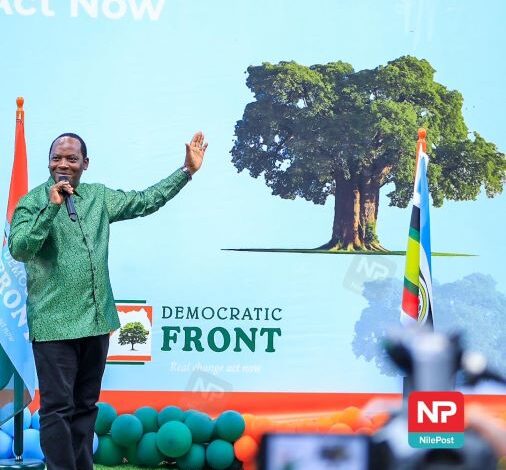Clergy Back Mpuuga’s Push For Electoral Reforms On Martyrs’ Day
Wakiso|FileFactsUg

Religious leaders from the Catholic and Anglican churches have joined the call for electoral reforms in Uganda, echoing the sentiments of Mathias Mpuuga, the national coordinator of the Democratic Alliance. This call arises as the country prepares for the 2026 General Elections.
The clerics made their remarks during the Martyrs’ Day celebrations on June 3, 2025, at Namugongo. The religious leaders expressed concern over the increasing injustices and oppression in the country, particularly targeting the political opposition.
They emphasized the necessity of free, fair, and peaceful elections, stressing that the current political climate is filled with tension and fear.
Kampala Catholic Archbishop Paul Ssemogerere was outspoken about the need for electoral reforms, stating, “As Uganda goes into the General elections next year, we have witnessed a period of political tension, fears, silence of the oppressed, and this should not be repeated.” He called for the expedited processing of pending electoral reforms to ensure peaceful elections.
Archbishop Ssemogerere stressed that elections should not be a source of unrest and that leadership should be based on service, not power.
He added that the Conference of Episcopal Bishops recently issued a joint pastoral letter urging the fast-tracking of proposed electoral reforms.
The Archbishop’s sentiments align with Mpuuga’s advocacy for electoral and constitutional reforms. Mpuuga has been promoting reforms to ensure that the electoral process is free, fair, and transparent.
The Democratic Alliance has proposed several reforms, including:
1. Amendment of the law to allow Ugandans in the diaspora and prisoners the right to vote.
2. Reducing the size of Parliament from the current 529 MPs to 295 MPs.
3. Restoration and entrenchment of presidential term limits.
4. Presidential candidates having a running mate who will be the deputy president.
5. Introduction of a second tier of Parliament with 39 MPs from the original 39 districts of Uganda. The deputy president will be its head.
6. Modification of the structure of the Electoral Commission.
7. Rethinking the decentralization model of managing local government.
8. Changing the method of declaring presidential election results from a centralized system to the district level.
9. Amending the system from first-past-the-post to a proportional representation model to create balance in Parliament.
10. Allowing ordinary voters to challenge presidential election results in court.
The call for electoral reforms by religious leaders is significant, as it emphasizes the growing concern among various stakeholders about the state of Uganda’s democracy. The support of religious leaders lends credibility to the push for reforms and highlights the need for a level playing field in the electoral process.
